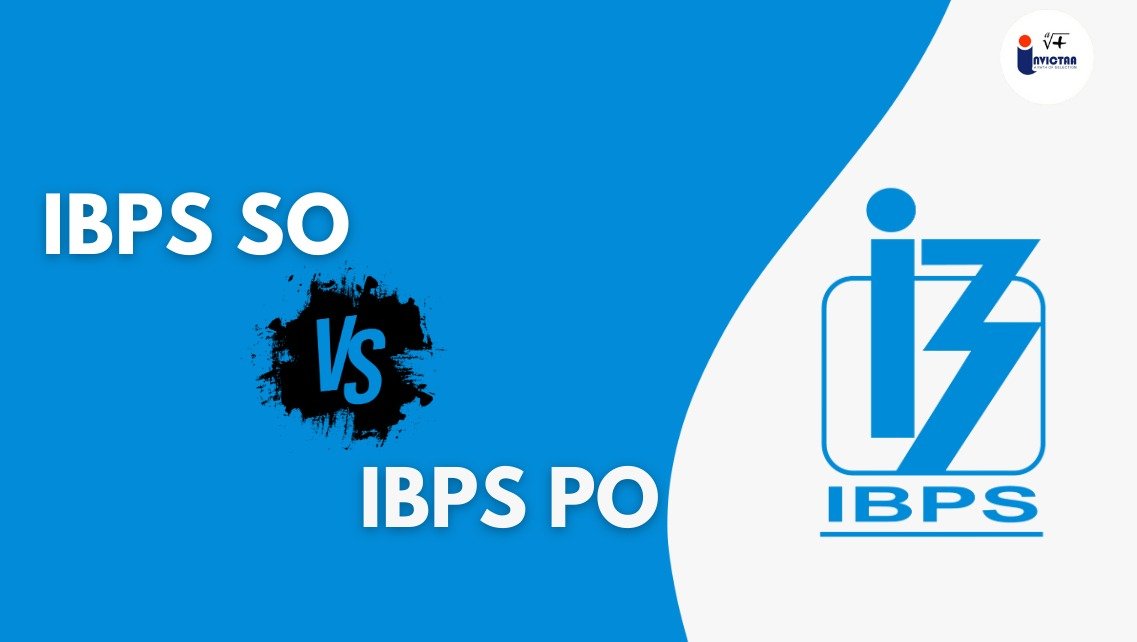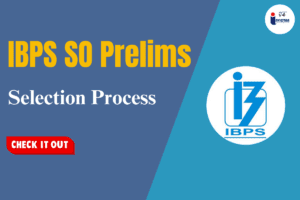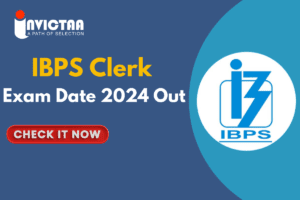IBPS SO vs IBPS PO: When choosing which bank exam to take, many banking job professionals encounter a conflict between the desire to become a Specialist Officer (SO) and a Probationary Officer (PO) in Indian banks. Both positions have suitable futures within the public sector banks in India, but they are entirely different regarding duties, scope, and prospects. This article will compare the two, helping you understand the differences and make an informed choice.
Overview of IBPS SO vs IBPS PO
The distinction between IBPS SO and IBPS PO primarily differs in the capacity of the functions performed. IBPS SO is for candidates who hold specialized knowledge in some area, such as IT, law, HR, agriculture, etc. On the other hand, the IBPS PO is a generalist role in which the officer has to perform different banking functions.
| Feature | IBPS SO (Specialist Officer) | IBPS PO (Probationary Officer) |
| Type of Role | Specialized roles in specific domains | General management role in banking operations |
| Typical Posts | IT Officer, Law Officer, HR Officer, Marketing Officer | Junior Management, Assistant Manager |
| Skillset Required | Specialized domain knowledge | General banking and management skills |
Also read: IBPS SO Mains Syllabus
Roles and Responsibilities of IBPS SO vs IBPS PO
The differences in roles and responsibilities between IBPS SO and IBPS PO are stark. Candidates who clear the IBPS SO exams must function in technical fields such as IT, legal, agriculture, or marketing. They focus on the tasks unique to their position; for instance, Law Officers deal with legal affairs, and IT Officers are tasked with IT resource management.
IBPS PO applicants, on the contrary, perform general banking duties. These include providing customer services, processing loan applications, managing customers’ accounts, and supervising the activities and functions of a branch on a day-to-day basis. Further, a PO has an extended range of duties and is also prepared for higher-level management roles in the bank.
Eligibility Criteria for IBPS SO vs IBPS PO
Both IBPS SO and IBPS PO have specific age criteria. Still, in the case of IBPS SO, residents must hold specialized qualifications such as a Bachelor of Law for Law Officers or an agriculture degree for Agriculture Officers. Unlike those applying for the position of IBPS SO, those applying for the position of IBPS PO will be required to have only a general degree qualification.
| Eligibility Parameter | IBPS SO | IBPS PO |
| Educational Qualification | Specialized degree (e.g., IT, Law, Agriculture) | Graduate in any discipline |
| Age Limit | 20 – 30 years | 20 – 30 years |
| Work Experience | Relevant experience in some posts (e.g., IT, Law) | No prior experience is required |
Exam Pattern and Selection Process in IBPS SO vs IBPS PO
The civil services examinations are similar, as they have preliminary, mains, and interview rounds. However, the exams are different in many ways. The IBPS SO checks specialized papers related to the field of interest specialization. At the same time, the IBPS PO has more generalized exams that include reasoning ability, quantitative aptitude, English language, and general knowledge.
| Exam Stage | IBPS SO (Specialist Officer) | IBPS PO (Probationary Officer) |
| Preliminary Exam | General English, Reasoning, Quantitative Aptitude | General English, Reasoning, Quantitative Aptitude |
| Main Exam | Professional Knowledge in a specific field | Reasoning, General Awareness, Computer Knowledge |
| Interview | Conducted after Mains | Conducted after Mains |
Salary and Benefits IBPS SO vs IBPS PO
IBPS SO and IBPS PO are good salaries, but there seems to be a better allowance for positions with expertise in IBPS SO. For instance, the bank’s IT Officers may be offered an IT allowance, and Law Officers may also be entitled to some allowance for their legal functions. Salary-wise, both positions don’t differ much in basic pay but with minor additions in benefits.
| Parameter | IBPS SO (Specialist Officer) | IBPS PO (Probationary Officer) |
| Basic Salary | ₹23,700 – ₹42,020 | ₹23,700 – ₹42,020 |
| Additional Perks | Allowances based on specialization (e.g., IT, Law) | Allowances for general banking responsibilities |
| Gross Salary | ₹38,000 – ₹45,000 | ₹37,000 – ₹45,000 |
Career Growth and Opportunities IBPS SO vs IBPS PO
In the battle of IBPS SO vs. IBPS PO, one of the most salient points of difference is the career growth potential. The IBPS PO opens up more avenues for growth since it is associated with general banking functions. A PO can be promoted to the positions of Branch Manager, Regional Manager, and eventually General Manager and even Executive Director.
What IBPS SO lacks in horizontal growth, it compensates for in the form of vertical growth within specific banking sectors. After gaining experience, an SO will likely be promoted to higher positions based on their specialized areas, such as chief Manager or Assistant General Manager.
Work-Life Balance in IBPS SO vs IBPS PO
Regarding the comparative analysis of IBPS SO vs. IBPS PO, IBPS SO candidates can be said to have a better work-life balance owing to their specialization roles. These roles often have a fixed time, including positions like HR and IT Officers. Conversely, IBPS PO candidates are expected to work for longer hours as their job entails multi-faceted obligations, such as in customer service and branch management.
IBPS SO vs IBPS PO FAQs
Q1 Which better defines the difference between IBPS SO vs IBPS PO?
Ans IBPS SO focuses on job profiles such as IT, Law, and HR, while IBPS PO focuses on general bank operations management.
Q2. What are the necessary education qualifications for IBPS SO vs IBPS PO?
Ans For IBPS SO, a bachelor’s degree of specialization in a relevant field is necessary; for IBPS PO, it’s a graduate degree in any discipline.
Q3 Which exam is more targeted, IBPS SO or IBPS PO?
Ans IBPS SO is more targeted as it has exams designed for specific areas such as IT, Law, and Agriculture.





